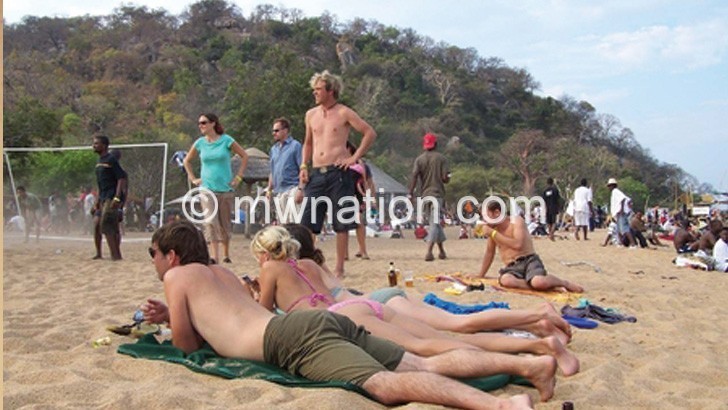Tourism sector loses K40bn in 3 months
A preliminary study by the Malawi Tourism Council (MTC) shows that the tourism sector has lost about K40.5 billion in potential revenue in the past three months due to the Covid-19 pandemic.
MTC board chairperson Tim Van Der Linden said in an interview on Monday that the study sampled average incomes of key operators before Covid-19 hit the sector, which contributes about seven percent to the country’s gross domestic product (GDP).
The findings show that the tourism sector contributes about K13.5 billion per month to the economy on average.
The study has recommended a monthly bailout package of K7.3 billion for wages, pension remittances and tax to avoid massive dismissals.

As of March this year, the sector, which employs about 200 000 or 2.9 percent of the total employment in Malawi, according to the World Travel and Tourism Council, laid off 35 000 employees due to the Covid-19 impact.
The findings of the study come at a time the Malawi Government is pondering on how best to provide a bailout package to rescue the sector from a complete collapse following suspension of international travel and physical conferencing, among others.
In a letter to the Ministry of Environment and Tourism seeking the bailout package, Linden said the tourism sector is faced with a hard decision about its future and survival in view of the closure of business.
He said despite businesses having seen up to 85 to 100 percent reduced income levels since the outbreak of Covid-19, many businesses are still trying to keep their staff on the payroll.
Linden said such a gesture cannot be sustained considering the damaging economic effects of Covid-19.
He said: “We would like to request once more your consideration on a bailout of supporting the industry pay the wages of their staff.
“By maximising the support to the sector at this time, our members and the industry can rebound quicker once transport links are back up and running.”
Linden said the risk to employment is that almost all jobs in the industry could be lost as the remaining businesses operating with financial difficulties will be closing.
On average, he said about 90 percent of anticipated earnings is being lost, but could not quantify how much tax government is losing.
Linden said some tourism operators are surviving on crowdfunding to keep their staff in-house, but the reserves are dwindling.
Apart from a monetary bailout to cushion wages to sustain the payroll, the tourism sector has also been lobbying government to suspend related taxes such as pay as you earn (Paye), withholding tax, pension and utility bills until business returns to normal.
Ministry of Environment, Wildlife and Tourism Principal Secretary Isaac Katopola, in an interview on Tuesday, said depending on resource availability, government will review and assess how much of what is being requested can be provided.
In his 2020/21 National Budget Statement, Minister of Finance, Economic Planning and Development Joseph Mwanamvekha acknowledged numerous calls for bailouts, but said government would have been able to provide support if it had money.
He said: “The Malawi Government has been operating deficit budgets for many years. This is unlike other economies that have surplus budgets and can afford bailouts and expansionary policies through stimulus packages.
“Malawi has not yet attained the luxury of operating a surplus budget to afford bailouts.”
Betchani Tchereni, economics lecturer at The Polytechnic, a constituent college of the University of Malawi, described the development as sad, but urged government to move swiftly to bail out the sector to rehire the fired staff.
He said: “This implies that foreign exchange losses will put balance of payment pressures on the economy of Malawi as foreign tourists have not been bringing the much-needed foreign exchange to the country.
In its latest report, the Reserve Bank of Malawi says due to the Covid-19 pandemic, the tourism industry is projected to contract by 9.9 percent in 2020 from an estimated growth of 4.8 in 2019.





